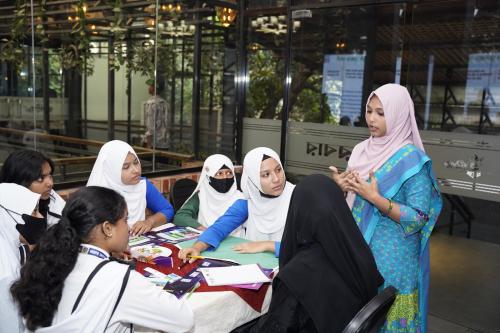Introduction
This case study tracks the development of the policy environment leading to the introduction of Grade R, the Reception Year for five year olds, in the years of transition to democracy in South Africa and its subsequent rollout towards universal provision originally set for 2010/11 but recently revised to 2014. It includes a reflection on what, in the Grade R scaleup process, would inform the current rollout of a national plan for integrated servicing for children aged zero to four years.
The paper was written by Linda Biersteker from the Early Learning Resource Unit, an ECD NGO specializing in policy, advocacy and programme development located in Cape Town, South Africa. The South African case study is based on a survey of published and grey literature, the author’s own long experience as a role player and researcher for many of the processes described in this report, as well as interviews with several key stakeholders in the ECD sector in South Africa. These stakeholders have for the most part, not been identified in the text for ethical considerations.
Key informants included:
- A senior education specialist in the National Policy Investigation Process
- An academic/activist involved in drafting the National Programme of Action for Children
- Leaders of the two major civil society bodies for ECD
- Five national and provincial education department staff (past and present)
- Members from the departmental review task team for Grade R
- Researchers involved in Grade R research, and
- An informant involved with early ECD policy formulation through the political process.
This case study is organised into seven sections. The first provides an overview of the context of ECD in South Africa, starting with key indicators of child status, and then outlining public sector institutions and civil society involvement in ECD, the policy environment and public programmes in support of young children, and how these are going to scale (or “massifying,” which is the current terminology). In the second section, the components of the Grade R intervention are described – its historical roots, the piloting phase, and the preparation for White Paper 5, which provides for rollout. The third section provides an assessment of the factors that led to the adoption of Grade R as part of the formal education system in South Africa, and the contribution of government and civil society to that. It also examines the funding mechanisms used for the start-up of this national programme. The fourth section focuses on requirements for the scaleup to universal provision, including governance, provisioning and capacity building for implementation, as well as advocacy trends in the scale-up period. In the fifth section, evaluations of progress towards universal Grade R provision at an acceptable level of quality are considered, as well as the probability that Grade R will be sustainable. The critical issues for mass expansion of Grade R are analysed next, and lessons learned from this are considered in relation to the currently developing national plan for ECD services for younger children. The final section contains recommendations for the next steps in the scale-up of Grade R and some preliminary recommendations for the scaling of services for children zero to four years.
The Brookings Institution is committed to quality, independence, and impact.
We are supported by a diverse array of funders. In line with our values and policies, each Brookings publication represents the sole views of its author(s).



